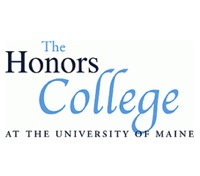Below is a summary of the abstract you submitted. Presenting author(s) is shown in bold.
If any changes need to be made, you can modify the abstract or change the authors.
You can also download a .docx version of this abstract.
If there are any problems, please email Dan at dar78@pitt.edu and he'll take care of them!
This abstract was last modified on March 15, 2022 at 3:30 p.m..

Gordonia bacteria are often found in wastewater treatment biomass where they can cause excessive foaming, inhibiting the final breakdown of the wastewater byproducts. Recently, the application of Gordonia-specific bacterial viruses, called bacteriophage, to wastewater has proven beneficial to remove the excessive foaming. Bacteriophages (phages) are diverse bacterial viruses and extremely numerous with approximately 1031 existing in nature. Therefore, increasing our knowledge of Gordonia phages will provide a greater understanding of how phage can be used to aid in wastewater treatment. Gordoina terrae was used as a host to isolate the phage Finkle from a soil sample collected in Brewer, Maine. Finkle is classified as a singleton, meaning it does not share genetic similarity with other phage that have been previously isolated. Finkle also has a temperate lifestyle, meaning it has the ability to integrate into the host cell genome. The genome of Finkle contains 47,895 base pairs with a 66.6% GC content. Annotation was performed using bioinformatic tools such as HHPRED, PECAAN, Phamerator and PhagesDB to determine gene start sites and identify protein functions. A toxin/antitoxin system, which increases bacterial fitness, was identified in the ~80 genes annotated, while 33 of the genes encode proteins with unknown function. Annotating G. terrae phage genomes increases our understanding of how phages can be used in the management of bacteria in activated sludge wastewater treatment. In addition, studying Gordonia bacteria and their phages will deepen our understanding of both the medical and environmental applications of this microbial family.
